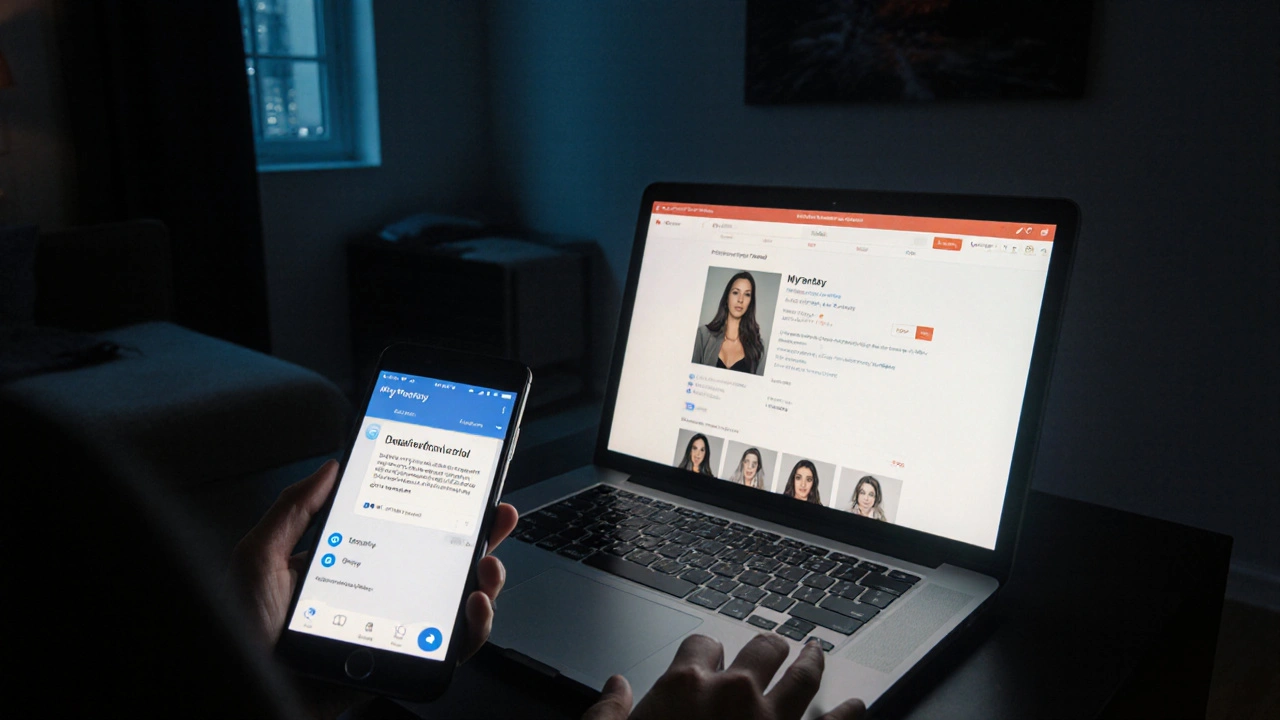The Evolution of Call Girl Services: From Secret Networks to Digital Platforms

You’ve probably heard the term call girl services in movies, gossip columns, or late-night conversations. But what’s really changed over the last 50 years? It’s not just about who’s offering the service-it’s about how, where, and why it’s done. The old image of a woman in a fur coat waiting in a hotel lobby? That’s mostly fiction now. Today’s reality is far more complex, digital, and hidden in plain sight.
What Exactly Are Call Girl Services?
At its core, a call girl service is a private arrangement where someone pays for companionship, conversation, and often sexual intimacy. The term itself dates back to the 1950s, when women would be "called" by clients via phone. Back then, these services were mostly run through discreet agencies or word-of-mouth referrals. There was no website, no app, no Instagram profile. Just a phone number, a code word, and a lot of risk.
Today, the term is still used, but it’s mostly outdated. Most people who offer these services now identify as independent escorts, private companions, or sex workers. The shift in language isn’t just semantics-it’s about control, safety, and dignity. These aren’t passive figures waiting to be summoned. They’re entrepreneurs managing their own schedules, marketing, client vetting, and legal boundaries.
How It Used to Work (Before the Internet)
In the 1970s and 80s, call girl services in London were tied to specific neighborhoods-Mayfair, Knightsbridge, St. James’s. Clients would call an agency, give a code name, and an escort would be dispatched. Payment was cash-only. No receipts. No records. No digital trail.
Agencies acted as middlemen. They took 40-60% of earnings. Escorts had little say in who they met, when, or where. If a client turned violent or didn’t pay, there was no recourse. Police raids were common. Many women worked under coercion, debt, or addiction. The industry was opaque, dangerous, and largely invisible to the public.
By the 1990s, phone books listed "companion services" under euphemisms like "personal assistant" or "hostess." Some ads appeared in underground magazines. But it was still risky. Getting caught meant jail, shame, or worse.
The Internet Changed Everything
The real turning point came in the early 2000s. Websites like Backpage, Eros, and later, independent escort directories, gave workers direct access to clients. No more agency. No more middleman. No more hidden fees.
Now, escorts could set their own rates, choose their clients, and work from home or rented flats. They could screen people through emails, video calls, and background checks. Social media let them build personal brands. Instagram profiles, private Telegram groups, and encrypted apps became the new front doors.
In London, you’ll find escorts advertising on platforms like London Escort Directory, AdultWork, or even niche Facebook groups. Many don’t even use the term "call girl" anymore. They say "companion," "private date," or "GFE (girlfriend experience)."
Why the Shift Matters
This isn’t just about technology-it’s about power. When women control their own business, they’re less vulnerable. They can say no. They can walk away. They can demand safety protocols.
Studies from the University of Leicester (2023) show that independent sex workers report 73% fewer violent incidents than those working through agencies. Why? Because they screen clients. They meet in safe locations. They share details with trusted friends. They don’t have to answer to someone else’s rules.
It also means more diversity. Today’s escorts aren’t just young women from one background. You’ll find LGBTQ+ individuals, students, single mothers, and professionals balancing this work with other careers. Some do it full-time. Others just for a few months to pay off debt or fund travel.

What’s Available in London Today?
London’s market is vast and varied. You won’t find one type of service-you’ll find dozens.
- High-end companions: Often based in Mayfair or Kensington, charging £500-£1,500 per hour. They focus on conversation, dining, and events-not just sex.
- Student escorts: Usually in their early 20s, working part-time. Rates start around £150-£300. Often meet in university areas like Bloomsbury or Camden.
- Specialty services: From BDSM to GFE, tantric sessions, or roleplay. These are advertised with clear boundaries and consent protocols.
- Virtual services: Video calls, sexting, or live streaming. These are growing fast, especially since the pandemic. No travel. No risk. Fully remote.
There’s also a rise in "ethical escorting"-workers who openly state their boundaries, require STI testing, and refuse unsafe requests. Some even link to their own blogs or podcasts about sex work rights.
How to Find These Services in London (Safely)
If you’re looking for this kind of service, here’s how to do it without putting yourself or someone else at risk:
- Use verified directories: Stick to sites that require identity verification and client reviews. Avoid random Craigslist posts or Telegram groups with no history.
- Read profiles carefully: Look for clear photos, detailed bios, and explicit boundaries. Someone who says "I’m flexible" without listing limits is a red flag.
- Communicate upfront: Ask about location, payment, and expectations before meeting. No one should pressure you to change your mind.
- Meet in public first: Even if you’re planning a private meeting, suggest a coffee shop or hotel lobby for the first meeting. Bring a friend. Tell someone where you’re going.
- Never pay in advance: Cash or bank transfer after the service is standard. Never send money via untraceable apps like Bitcoin unless you’re sure of the person.
What to Expect During a Session
It’s not like the movies. There’s no dramatic entrance, no slow-motion walk into a dim room. Most sessions start with a chat. Coffee, wine, or tea. Conversation about books, travel, or politics. Many clients say the real value isn’t sex-it’s being heard.
Physical intimacy, if it happens, is negotiated. Consent is non-negotiable. A good escort will ask: "What are you comfortable with?" and "What are your limits?" They’ll stop if you flinch. They’ll pause if you change your mind.
Most sessions last 1-3 hours. Some are longer. Some are shorter. It depends on what both people agree on. There’s no script. No routine. Just two people, in a private space, being honest with each other.
Pricing and Booking
Prices in London vary wildly based on experience, location, and service type.
- Basic companionship: £150-£250/hour
- Mid-range (well-reviewed, professional): £300-£500/hour
- High-end (luxury, events, travel): £600-£1,500/hour
- Virtual sessions: £50-£150/hour
Most work on a booking system. You message them, they reply with availability. Payment is usually via bank transfer or cash on site. Some use encrypted apps like Signal or WhatsApp for communication. No one reputable will ask for your credit card details upfront.
Safety Tips (For Clients and Workers)
Whether you’re hiring or offering, safety comes first.
- Always verify identity: Ask for a photo ID. Use video call before meeting.
- Share your plans: Tell a friend where you’re going and who you’re meeting.
- Meet in a safe space: Hotels with 24/7 reception, public areas, or your own home if you’re comfortable.
- Never use drugs or alcohol: Impaired judgment = higher risk.
- Know your rights: You can leave at any time. You can refuse any request. No one owns your body.
For workers: Use screening tools like Escort Safety or Red Umbrella Fund. Keep a list of emergency contacts. Record your meetings if legal. Trust your gut-if something feels off, cancel.
Call Girl Services vs. Independent Escorts in London
| Feature | Traditional Call Girl Service | Modern Independent Escort |
|---|---|---|
| Who runs it? | Agency or pimp | Worker themselves |
| Payment structure | Agency takes 40-70% | Worker keeps 100% |
| Client screening | Minimal or none | Strict: ID, video, references |
| Location control | Assigned by agency | Worker chooses |
| Legal protection | None | Some use contracts, insurance |
| Online presence | None or hidden | Professional website, reviews, social media |
Frequently Asked Questions
Are call girl services legal in London?
Selling sexual services is not illegal in the UK, but many related activities are. Brothel-keeping, pimping, and soliciting in public are crimes. Independent workers who operate privately, without third parties, are generally not prosecuted. The law is unclear, but enforcement is rare for consenting adults in private.
How do I know if an escort is legitimate?
Look for consistent online presence: verified profiles, real photos, client reviews, and clear communication. Avoid anyone who pressures you, refuses video calls, or asks for money upfront. Legitimate workers are transparent, professional, and respect boundaries.
Can I get in trouble for hiring an escort?
As a client, you’re rarely targeted by police unless there’s evidence of trafficking, underage work, or public solicitation. Most cases involve agencies, not individuals. Still, using unverified services increases risk. Always prioritize safety and legality.
Why do people hire escorts?
It’s not just about sex. Many clients are lonely, divorced, or socially isolated. Others want to experience intimacy without emotional baggage. Some just need someone to talk to who won’t judge. The most common reason? Human connection. It’s simpler than you think.
Is this just another form of exploitation?
Sometimes. But not always. Many sex workers choose this work because it offers flexibility, higher pay than other jobs, and control over their time. Studies show that when workers have autonomy, they report higher satisfaction and lower trauma. The problem isn’t the work-it’s the stigma, the laws, and the lack of rights.
Final Thoughts
The evolution of call girl services isn’t about sex. It’s about autonomy. It’s about technology giving power back to people who were once controlled. The old model-hidden, dangerous, exploitative-is fading. The new one-transparent, self-directed, digital-isn’t perfect, but it’s safer.
If you’re curious, do your homework. If you’re considering this work, know your rights. If you’re a client, treat people with respect. This isn’t a fantasy. It’s real life. And real life deserves honesty, not judgment.

Josh B
November 16, 2025 AT 02:43The shift from agencies to independent workers is huge. It’s not just tech-it’s autonomy. People forget that this is labor, and when you remove the middlemen, you remove the exploitation. No more 60% cuts. No more forced locations. Just real people setting boundaries. Simple, but radical.
Cass Dixon
November 18, 2025 AT 00:51Don’t be fooled by the ‘empowerment’ narrative. This is just digital prostitution with a LinkedIn profile. The same predators, same traffickers, same exploitation-now with encrypted apps and Instagram filters. The government lets this fly because they’re too cowardly to shut down the dark web, and the media loves a ‘progressive’ story. Wake up. This isn’t liberation-it’s laundering.
Miriam Benovitz
November 19, 2025 AT 00:11OMG I JUST READ THIS AND I’M CRYING. I used to work this way in Austin, and let me tell you-when I started screening clients with video calls and sharing my location with my bestie, my anxiety dropped 90%. I went from being scared to sleep at night to booking my own trips to Berlin. This isn’t ‘sex work’-it’s entrepreneurship with a pulse. And yes, I still hate the term ‘call girl.’ It sounds like a 1950s sitcom villain.
Renee Kyndra
November 19, 2025 AT 19:05There’s dignity here. Not in the act, but in the control. People who dismiss this as ‘just sex’ don’t understand how much emotional labor goes into being a companion. The listening. The patience. The boundary-setting. It’s not transactional-it’s relational. And when someone says ‘I need someone to talk to without judgment,’ that’s not a fantasy. That’s human.
Ron Tang
November 20, 2025 AT 06:45So… you’re telling me the real innovation here isn’t the app, it’s the fact that someone finally said ‘I get to say no’? That’s wild. We’ve spent centuries building systems that tell women what to do-and now a 24-year-old student in Camden is booking her own clients, setting her own rates, and refusing a guy who asked for ‘a little more than agreed.’ That’s not just progress. That’s revolution. High five, whoever you are.
Jaime Rosenfeld
November 21, 2025 AT 15:15Of course this is a liberal psyop. The deep state wants to normalize this so they can erase morality. You think these women are ‘empowered’? They’re being groomed by NGOs funded by Soros. Look at the language-‘ethical escorting’? That’s not a job, that’s a cult. And now they’re teaching this in universities. Next they’ll make you pay taxes for it. Wake up, sheeple.
Emily Hutchis
November 23, 2025 AT 12:49What’s fascinating isn’t the technology-it’s the quiet rebellion. These women aren’t screaming for rights. They’re just… working. Setting boundaries. Choosing when to say yes or no. No banners. No rallies. Just a woman in her flat, typing ‘Available Friday 7pm’ and then deleting a message from someone who didn’t respect her limits. That’s the quietest kind of power. And it’s working.
Chloe Ulbick
November 23, 2025 AT 20:17I love how this post doesn’t shy away from the emotional side. So many people think it’s just about sex, but honestly? I’ve talked to escorts who say the most common request is just… ‘Can we sit and watch a movie?’ No touching. Just company. That’s not exploitation. That’s loneliness being met with kindness. 🤍
lee sphia
November 25, 2025 AT 04:22While the structural shift toward autonomy is commendable, one must not overlook the systemic vulnerabilities that persist even in digital ecosystems. The absence of regulatory frameworks, the lack of labor protections, and the stigma embedded in societal discourse continue to place workers at risk. Technology facilitates control, but it does not erase structural inequality. A nuanced policy approach-centered on decriminalization, not commodification-is required to ensure true safety and dignity.